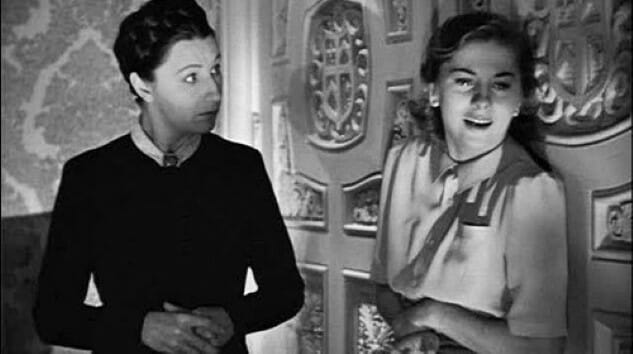The Best Horror Movie of 1940: Rebecca

This post is part of Paste’s Century of Terror project, a countdown of the 100 best horror films of the last 100 years, culminating on Halloween. You can see the full list in the master document, which will collect each year’s individual film entry as it is posted.
The Year
After the success of Son of Frankenstein in 1939 and the subsequent rush to get horror films back into production, 1940 is chock full of horror flicks of all kinds, from dramatic thrillers that only border on the edges of the genre, to more “mad doctor” movies that will proliferate like weeds this decade, to lighthearted horror comedies such as The Ghost Breakers, which stars a boyish Bob Hope.
Notable this year is the emergence of one Vincent Leonard Price Jr., at the very beginning of his career, starring in two films of note: The mystery/gothic drama The House of the Seven Gables and Universal’s The Invisible Man Returns. In the latter, he plays the title role of Geoffrey Radcliffe, the titular invisible man in this installment, a wrongfully convicted criminal who is turned invisible in order to slip the hangman’s noose. Although he’s not playing the same character that Claude Rains did in 1933, Price brings the same charisma and hint of satirical humor to the role. He would spend the next two decades largely performing in dramas, until 1953’s House of Wax made him a horror icon to be exploited heavily by Roger Corman’s Edgar Allen Poe films of the 1950s and 1960s, resulting in horror typecasting for the rest of his long career. Price would ultimately have credited screen roles in seven decades.
1940 is a year for lesser Universal horror works in general, as The Mummy’s Hand kicks off a rather meandering series of sequels without Boris Karloff, in which the shambling mummy Kharis slowly and unstoppably lurches around and strangles people to the tune of three more sequels: The Mummy’s Tomb, The Mummy’s Curse and The Mummy’s Ghost, which descend in quality pretty rapidly. Karloff and Lugosi, meanwhile, are at it again in Black Friday, while Karloff ultimately appears in four different horror films this year, which also include Before I Hang and The Man With Nine Lives. Suffice to say, the guy took advantage of all the work he could while the getting was good.
1940 Honorable Mentions: The Invisible Man Returns, The Mummy’s Hand, Before I Hang, Black Friday, The Ghost Breakers
-

-

-

-

-

-

-

-

-

-

-

-

-

-

-

-

-

-

-

-

-

-

-

-

-

-

-

-

-

-

-

-

-

-

-

-

-

-

-

-








































